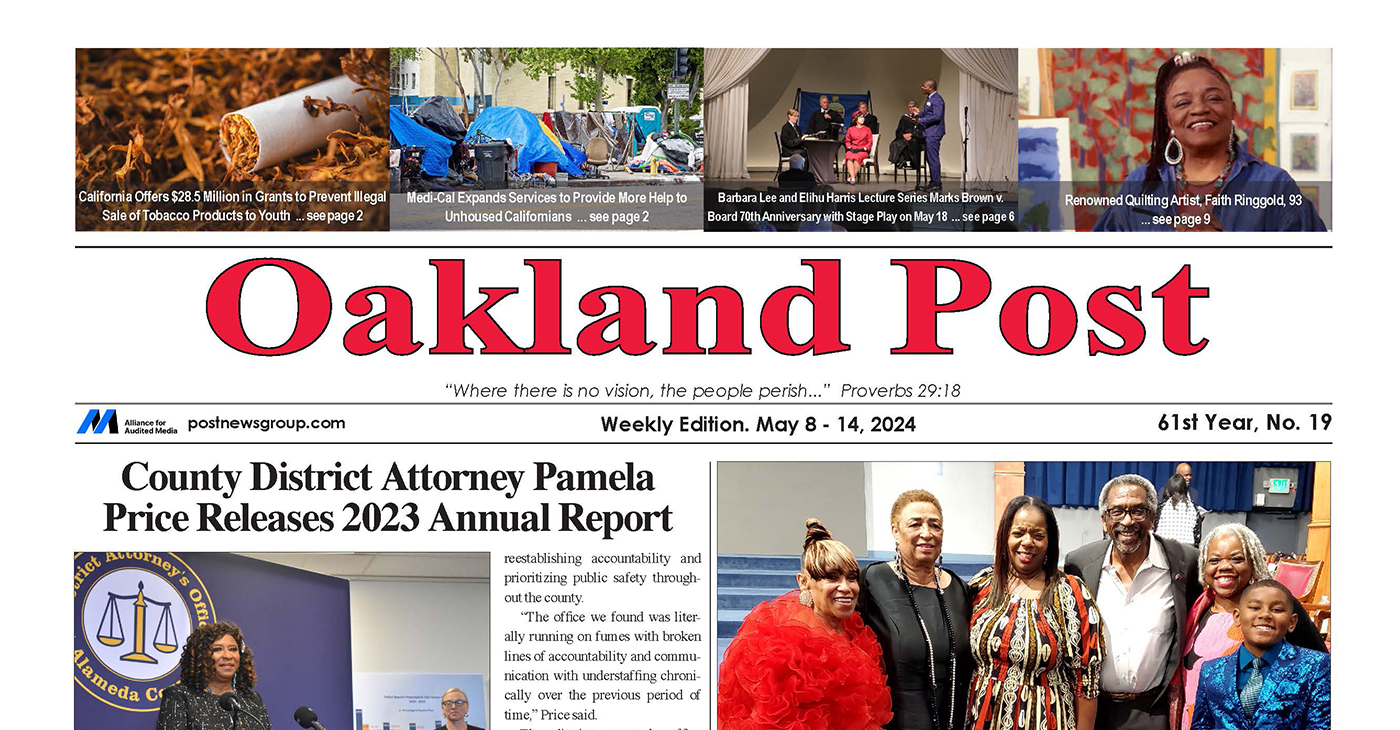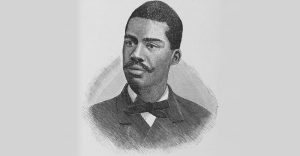Business
EEOC: UPS Discriminates with Bans on Beards, Long Hair
Tom Hays, ASSOCIATED PRESS
NEW YORK (AP) — A Muslim man who objected to rules requiring him to get rid of his beard if he wanted to become a driver for UPS Inc. was told by a UPS official that “God would understand” if he shaved, the U.S. Equal Employment Opportunity Commissioner said in a lawsuit filed Wednesday against the shipping company.
The lawsuit in federal court in Brooklyn alleges that the man was one of several employees who were victims of religious discrimination in the past decade by the nation’s largest package delivery company. The EEOC wants the court to force the company to comply with Civil Rights Act protections and to award the plaintiffs back pay and unspecified damages.
“No person should be forced to choose between their religion and a paycheck, and EEOC will seek to put an end to that longstanding practice at UPS,” said Robert D. Rose, an attorney for agency’s New York office.
UPS spokesman Steve Gaut said in a statement Wednesday that the Atlanta-based company has protocols in place for employees to seek permission for religious accommodations when it comes to appearance or work schedules.
The company “respects religious differences and is confident in the legality of its employment practices,” Gaut said. “UPS is proud of the diversity of its workforce.”
According to the suit, UPS has policies that prohibit supervisors and any employees who interact with customers from wearing facial hair below the lip or growing hair below the collar. It accused the company of deliberately withholding information from applicants and existing back-facility employees about how to seek exceptions to the policies, or by delaying their requests for waivers for so long that they gave up.
The alleged victims weren’t only Muslims: The suit says Rastafarian workers with dreadlocks in Florida and elsewhere were denied supervisory positions based on their beliefs and segregated into the back of facilities to be sorters. In one case, it says, a manager ignored a request for a religious exception by a worker trying for a promotion, telling him he “didn’t want any employees looking like women on his management team.”
A Native American applicant who applied for a position in Stockton, California, tried to explain that he wore his hair long as part of his religious observance and offered to hide it under his shirt or in a hair net, the suit says. The alleged response: “No haircut, no job.”
Copyright 2015 The Associated Press. All rights reserved. This material may not be published, broadcast, rewritten or redistributed.
###
Activism
Oakland Post: Week of May 8 – 14, 2024
The printed Weekly Edition of the Oakland Post: Week of May May 8 – 14, 2024

To enlarge your view of this issue, use the slider, magnifying glass icon or full page icon in the lower right corner of the browser window. ![]()
Bay Area
Mayor Breed Proposes Waiving City Fees for Night Markets, Block Parties, Farmers’ Markets, Other Outdoor Community Events
Mayor London N. Breed introduced legislation on April 26 to encourage and expand outdoor community events. The first will waive City fees for certain events, making them less costly to produce. The second will simplify the health permitting for special event food vendors through the creation of an annual permit. Both pieces of legislation are part of the Mayor’s broader initiative to bring vibrancy and entertainment to San Francisco’s public right of ways and spaces.

Mayor’s Press Office
Mayor London N. Breed introduced legislation on April 26 to encourage and expand outdoor community events.
The first will waive City fees for certain events, making them less costly to produce. The second will simplify the health permitting for special event food vendors through the creation of an annual permit. Both pieces of legislation are part of the Mayor’s broader initiative to bring vibrancy and entertainment to San Francisco’s public right of ways and spaces.
Outdoor community events are integral to San Francisco’s vibrant culture and sense of community. These events include night markets, neighborhood block parties and farmers markets, and bolster the City’s economy by supporting local businesses and attracting tourists eager to experience San Francisco’s unique charm and food scene.
They offer residents, workers and visitors, opportunities to engage with local artists, musicians, and food vendors while enjoying the San Francisco’s stunning outdoor spaces and commercial corridors.
The legislation will allow for more and new community gatherings and for local food vendors to benefit from the City’s revitalization.
“San Francisco is alive when our streets are filled with festivals, markets, and community events,” said Breed. “As a city we can cut fees and streamline rules so our communities can bring joy and excitement into our streets and help revitalize San Francisco.”
Fee Waiver Legislation
The events that can take advantage of the new fee waivers are those that are free and open to the public, occupy three or fewer city blocks, take place between 8 a.m. and 10 p.m., and have the appropriate permitting from the ISCOTT and the Entertainment Commission.
The applicant must be a San Francisco based non-profit, small business, Community Benefit District, Business Improvement District, or a neighborhood or merchant association. Fees eligible for waiver include any application, permit, and inspection/staffing fees from San Francisco Municipal Transportation Agency, Department of Public Health, Fire Department, Entertainment Commission, and Police Department.
Currently, it can cost roughly anywhere between $500-$10,000 to obtain permits for organized events or fairs, depending on its size and scope. Organizations and businesses are limited to a maximum of 12 events in one calendar year for which they can receive these fee waivers.
Food Vendor Streamlining Legislation
The second piece of legislation introduced will help special event food vendors easily participate in multiple events throughout the year with a new, cost-effective annual food permit. Food vendors who participate in multiple events at multiple locations throughout the year will no longer need to obtain a separate permit for each event. Instead, special event food vendors will be able to apply and pay for a single annual permit all at once.
“Many successful food businesses either begin as pop-up vendors or participate in special events to grow their business,” says Katy Tang, Director of the Office of Small Business. “Giving them the option for an annual special event food permit saves them time and money.”
Currently, food vendors are required to get a Temporary Food Facility (TFF) permit from the Department of Public Health (DPH) in order to participate in a special event, among permits from other departments.
Currently, each special event requires a new permit from DPH ranging from $124-$244, depending on the type of food being prepared and sold. Last year, DPH issued over 1,500 individual TFF permits. With the new annual permit, food vendors selling at more than four to six events each year will benefit from hundreds of dollars in savings and time saved from fewer bureaucratic processes.
“This legislation is a step in the right direction to make it easier for food vendors like me to participate in citywide events,” said Dontaye Ball, owner of Gumbo Social. “It saves on time, money and makes it more effective. It also creates a level of equity.”
Bay Area
Faces Around the Bay: Sidney Carey
Sidney Carey was born in Dallas, Texas. He moved with his family to West Oakland as a baby. His sister is deceased; one brother lives in Oakland. Carey was the Choir Director at Trinity Missionary Baptist Church for 18 years.

By Barbara Fluhrer
Sidney Carey was born in Dallas, Texas. He moved with his family to West Oakland as a baby. His sister is deceased; one brother lives in Oakland.
Carey was the Choir Director at Trinity Missionary Baptist Church for 18 years.
He graduated from McClymonds High with a scholarship in cosmetology and was the first African American to complete a nine-month course at the first Black Beauty School in Oakland: Charm Beauty College.
He earned his License, and then attended U.C., earning a secondary teaching credential. With his Instructors License, he went on to teach at Laney College, San Mateo College, Skyline and Universal Beauty College in Pinole, among others.
Carey was the first African American hair stylist at Joseph and I. Magnin department store in Oakland and in San Francisco, where he managed the hair stylist department, Shear Heaven.
In 2009, he quit teaching and was diagnosed with Congestive Heart Failure. He was 60 and “too old for a heart transplant”. His doctors at California Pacific Medical Center (CPMC) went to court and fought successfully for his right to receive a transplant. One day, he received a call from CPMC, “Be here in one hour.” He underwent a transplant with a heart from a 25-year- old man in Vienna, Austria
Two years later, Carey resumed teaching at Laney College, finally retiring in 2012.
Now, he’s slowed down and comfortable in a Senior Residence in Berkeley, but still manages to fit his 6/4” frame in his 2002 Toyota and drive to family gatherings in Oakland and San Leandro and an occasional Four Seasons Arts concert.
He does his own shopping and cooking and uses Para Transit to keep constant doctor appointments while keeping up with anti-rejection meds. He often travels with doctors as a model of a successful heart-transplant plant recipient: 14 years.
Carey says, “I’m blessed” and, to the youth, “Don’t give up on your dreams!”
-

 Community4 weeks ago
Community4 weeks agoFinancial Assistance Bill for Descendants of Enslaved Persons to Help Them Purchase, Own, or Maintain a Home
-

 City Government1 week ago
City Government1 week agoCourt Throws Out Law That Allowed Californians to Build Duplexes, Triplexes and RDUs on Their Properties
-

 Activism2 weeks ago
Activism2 weeks agoOakland Post: Week of April 24 – 30, 2024
-

 Business4 weeks ago
Business4 weeks agoV.P. Kamala Harris: Americans With Criminal Records Will Soon Be Eligible for SBA Loans
-

 Activism4 weeks ago
Activism4 weeks agoOakland Post: Week of April 10 – 16, 2024
-

 Community4 weeks ago
Community4 weeks agoAG Bonta Says Oakland School Leaders Should Comply with State Laws to Avoid ‘Disparate Harm’ When Closing or Merging Schools
-

 Community3 weeks ago
Community3 weeks agoRichmond Nonprofit Helps Ex-Felons Get Back on Their Feet
-

 Community3 weeks ago
Community3 weeks agoOakland WNBA Player to be Inducted Into Hall of Fame











































